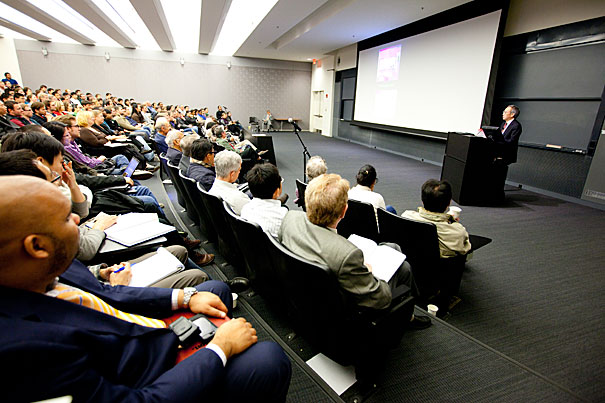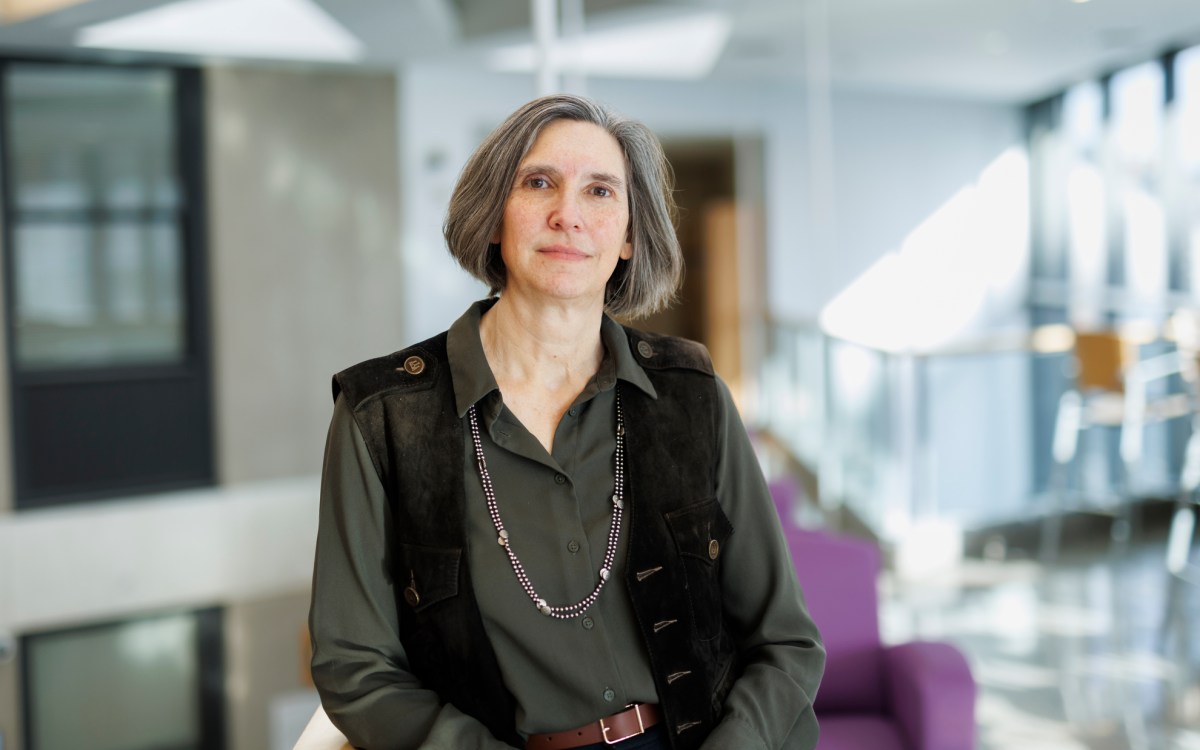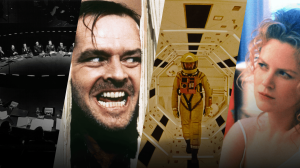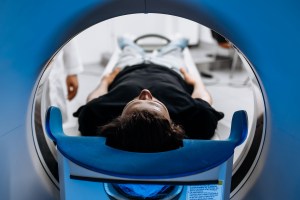Science & Tech
-
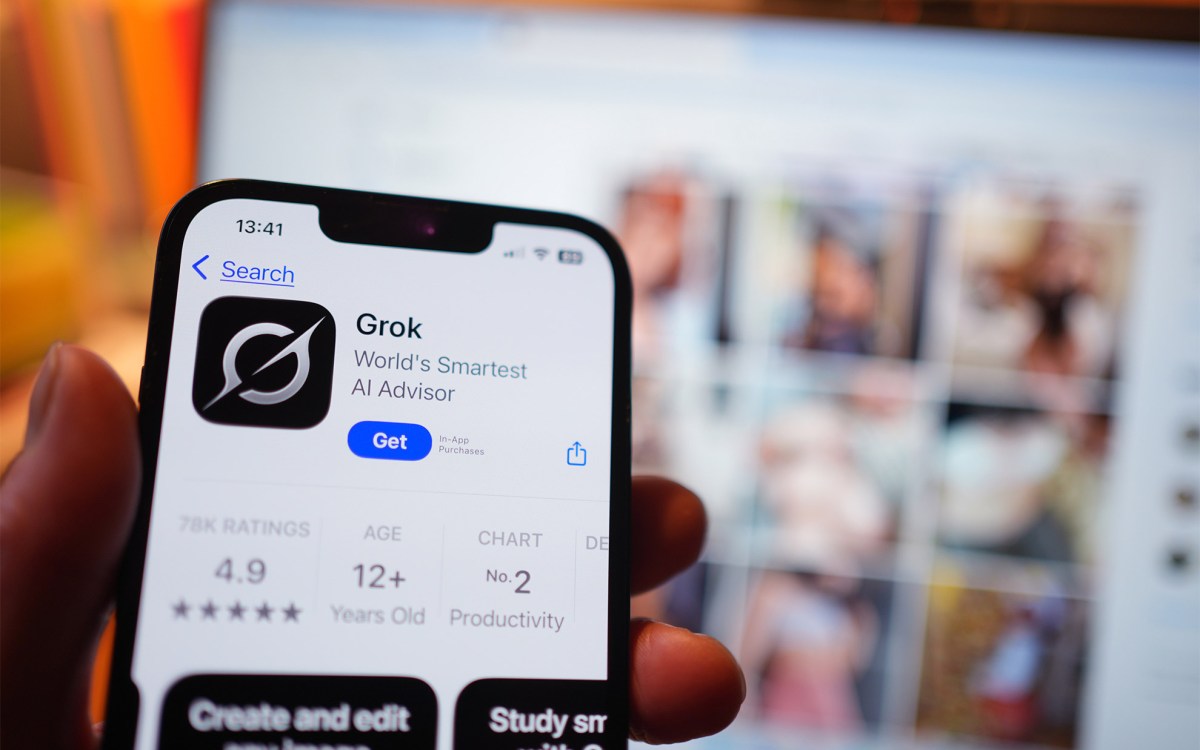
How AI deepfakes have skirted revenge porn laws
Limits unclear when explicit images of individuals look real, but are digitally generated
-
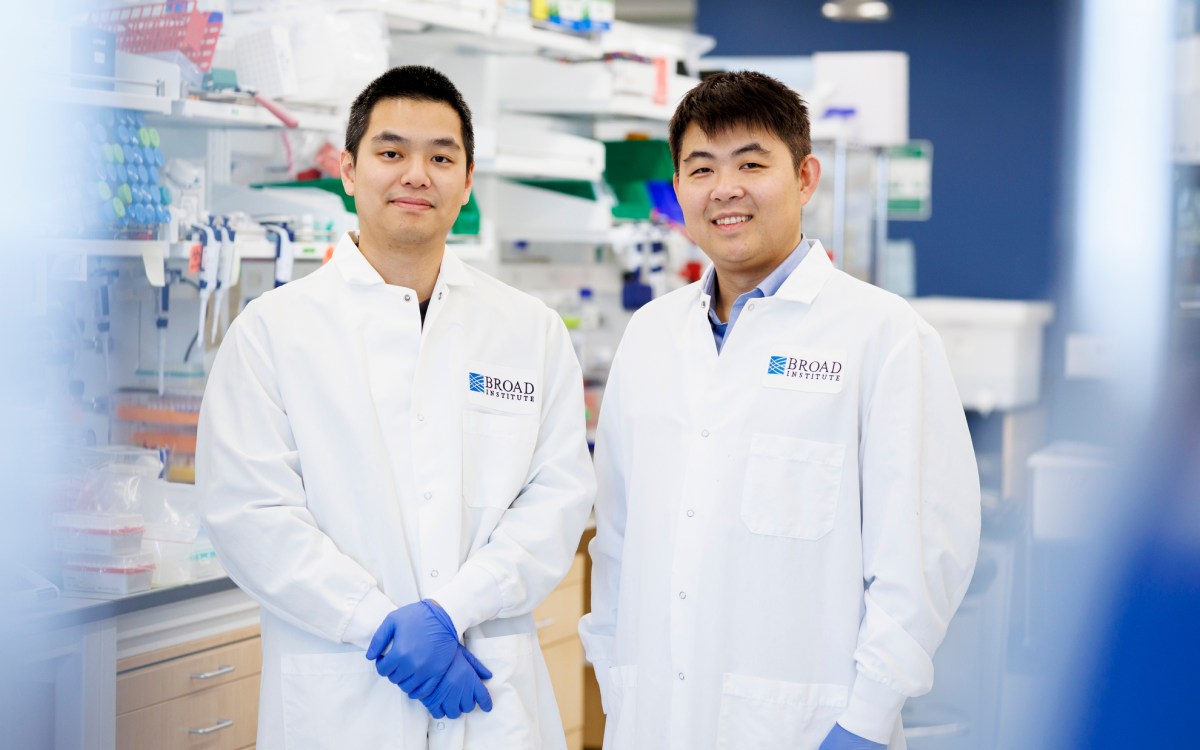
How did that cancer cell become drug-resistant?
Researchers find way to create microscopic archives of gene activity to gain insights into how, why changes happen

-
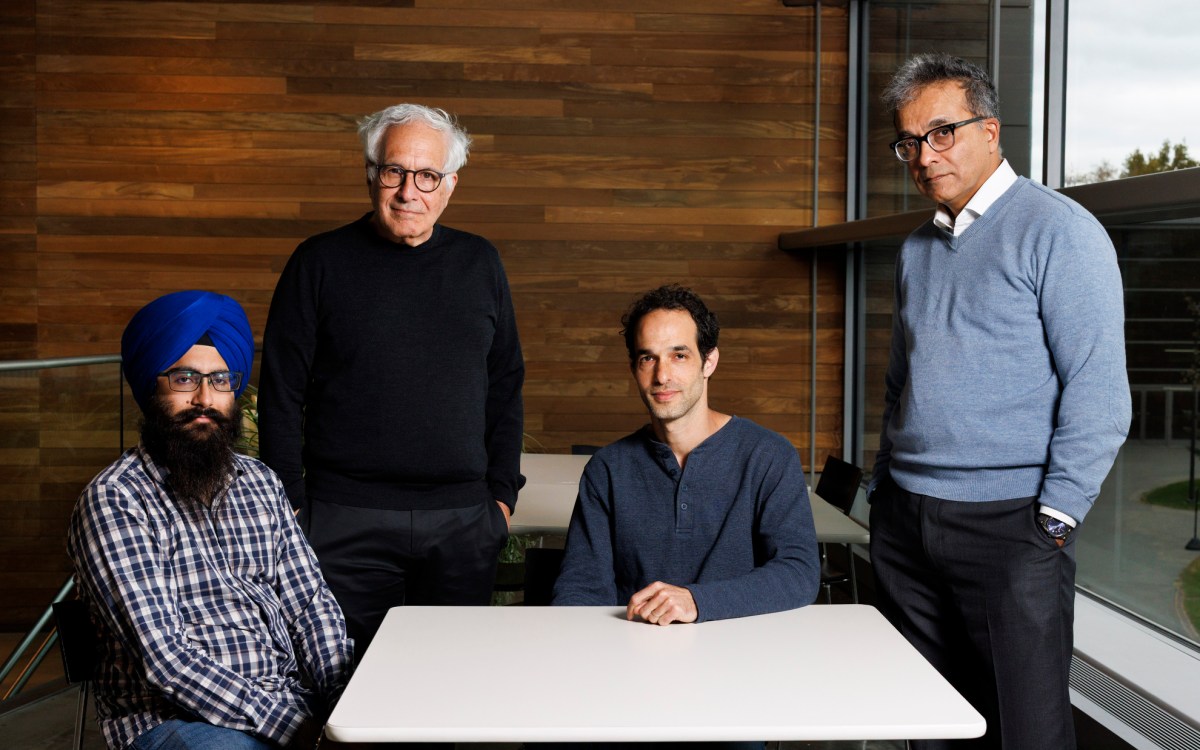
Want to speed brain research? It’s all in how you look at it.
New AI-enhanced scanning method promises to boost quest for high-resolution mapping
-
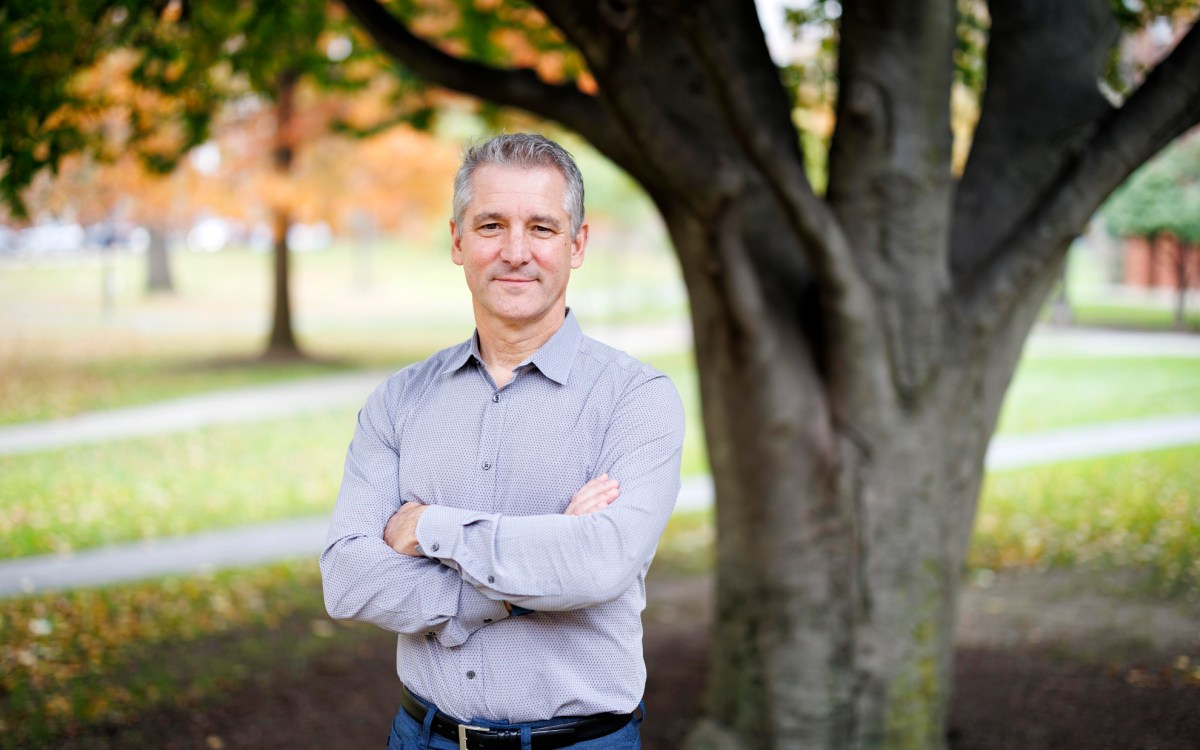
-
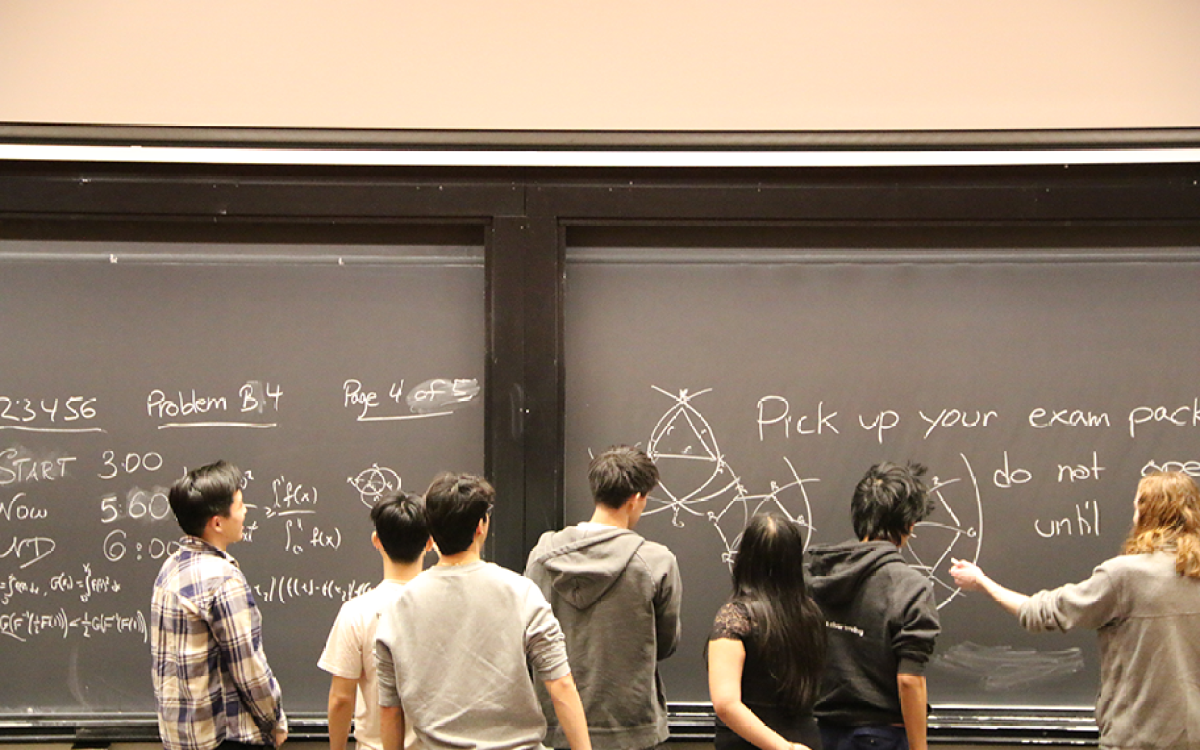
‘It just feels good when you solve the hard problems’
Why do students volunteer to take this notoriously difficult math exam? For the fun of it.
-
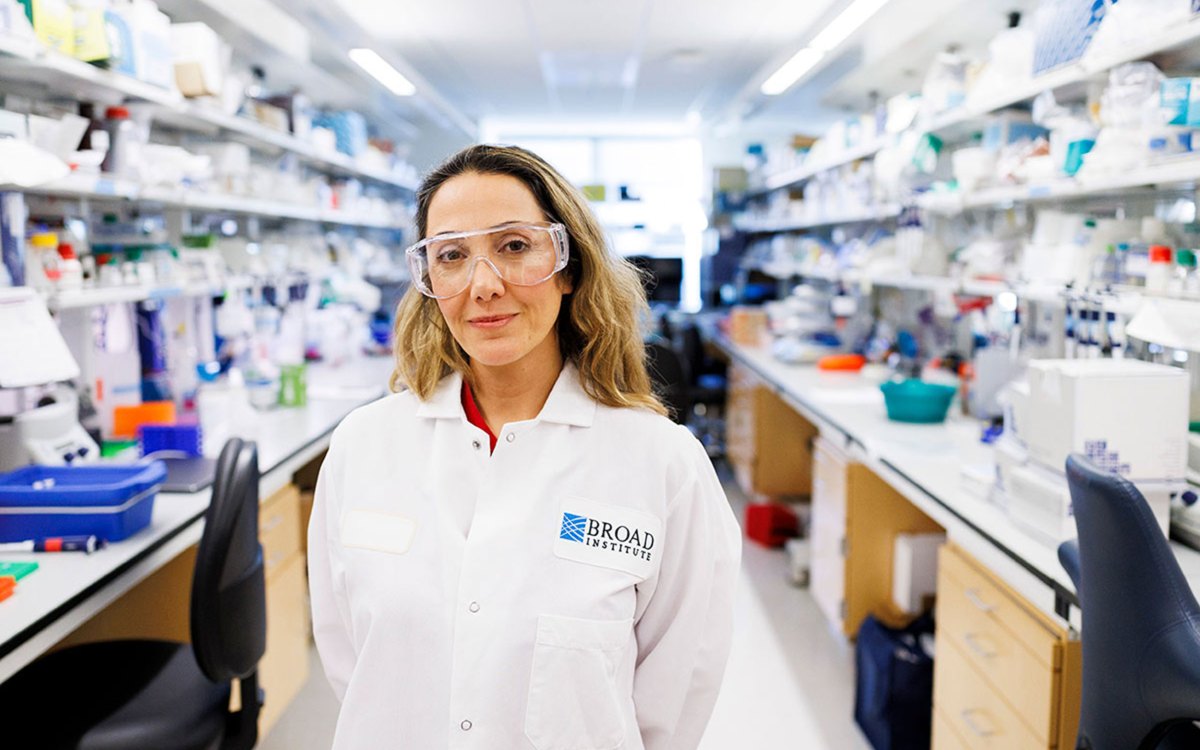
Stopping the next pandemic
Disease surveillance network faced ‘existential cliff’ despite proven success. Then came the $100 million.
-
Designing in the human context
For a week in January, 40 students from a variety of backgrounds — comparative literature to computer science — engaged in a “design thinking” workshop led by IDEO, an internationally renowned design consulting firm. Throughout, the human element was key — How do people actually use a product? — as was a certain amount of ad-libbed fun.
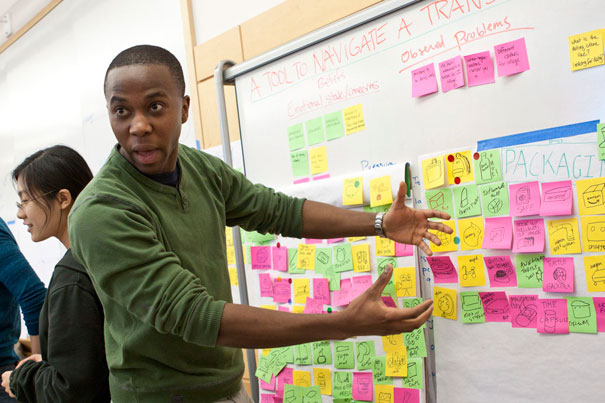
-
The ‘diversity problem’ in science
Opportunities for women and people of color to pursue careers in science have improved in recent years, but still lag behind those of white men, Harvard College Dean Evelynn M. Hammonds told a crowd at the Massachusetts Institute of Technology in her keynote address at the Institute Diversity Summit.

-
Physics at 2,500 feet
In 1934, a group of enterprising young Turks pooled their money and bought construction plans for a glider. Pioneers in the infancy of aviation, they built it by hand, out of wood and fabric, and when the time came for its maiden flight, they drew straws.
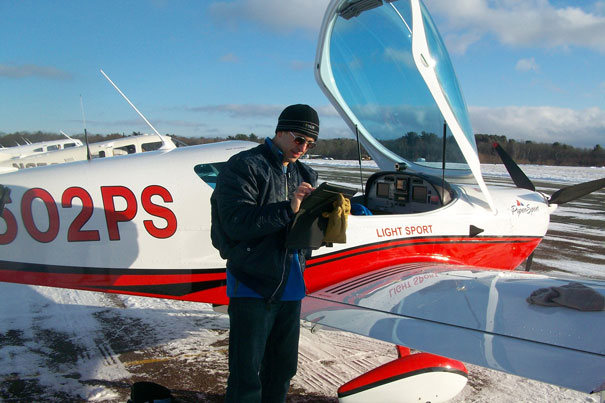
-
Early-stage venture fund launches
Today, the Experiment Fund, a new seed-stage investment fund, opens its doors with backing from storied venture capital firm New Enterprise Associates (NEA). Designed specifically to support student start-ups and nurture novel technologies and platforms created in Cambridge (or by innovators educated in Cambridge), the Experiment Fund will eventually include additional strategic angel investors and advisers.
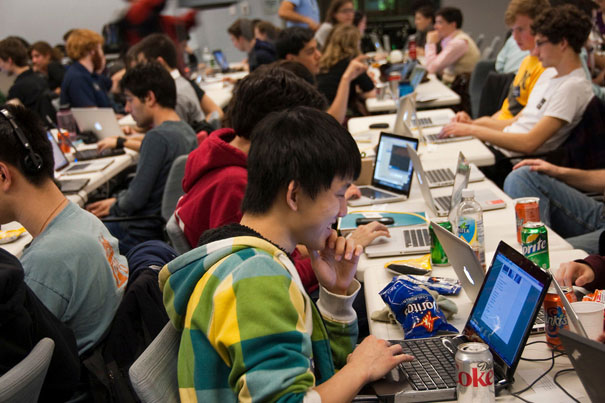
-
With a little help from our ancient friends
The social networks of the Hadza, a group of hunter-gatherers in Tanzania, show evidence that many elements of social network structure may have been present at an early point in human history.
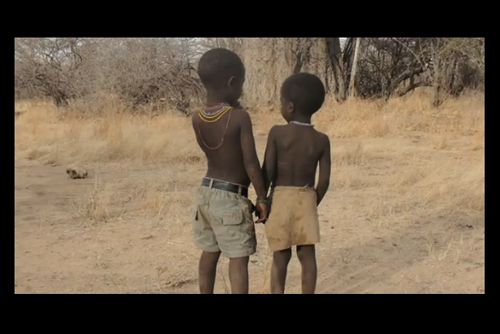
-
Scourge source
New research at Harvard explains how bacterial biofilms expand on teeth, pipes, surgical instruments, and crops.
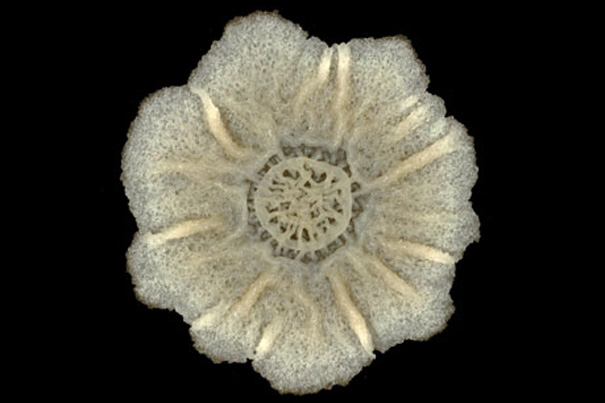
-
Planets, planets everywhere
The rapid rise in discoveries of planets circling other stars is changing astronomers’ views of the galaxy and the Earth’s place in it, giving impetus to the search for extraterrestrial life, astronomer and Radcliffe Fellow Ray Jayawardhana says.
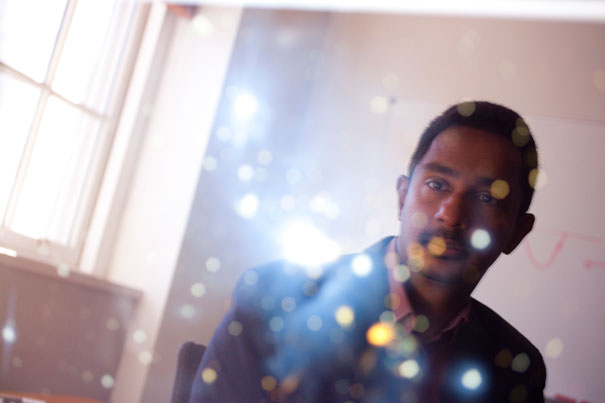
-
Taste test
Using friendship data collected from Facebook, Harvard sociologists have found that people who share similar interests in music and movies are more likely to befriend one another, but that very few interests are likely to spread among friends.

-
Map making, made easy
Developed by Harvard’s Center for Geographic Analysis, WorldMap allows scholars to create, share, and publish maps and other geospatial data.
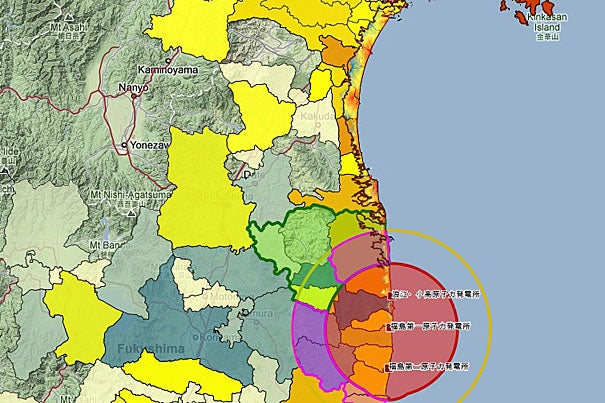
-
Harvard Thinks Green: Why Physicians Must Protect the Global Environment
Dr. Eric Chivian from Harvard Medical School, the Director of the Center for Health and the Global Environment and Assistant Clinical Professor of Psychiatry, named by Time Magazine in 2008 as “one of the most influential people in the world” and a recipient of the 1985 Nobel Peace Prize, Dr. Eric Chivian. December 8, 2011
-
Harvard Thinks Green: Making Money While Making a Difference: Is it Really that Easy?
Professor Rebecca Henderson from Harvard Business School is the Co-Director of their Business and Environment Initiative and recently named the John and Natty McArthur University Professor December 8, 2011
-
Harvard Thinks Green: SimCity Revisited – Modeling the Energy Performance of Cities
Christoph Reinhart is from the Harvard Graduate School of Design, Associate Professor of Architectural Technology and the leader of Harvard’s Sustainable Design Research Initiative December 8, 2011
-
Harvard Thinks Green: Your Role as a Leader of Sustainability Efforts
Professor Robert Kaplan from the Harvard Business School is a professor of Management Policy December 8, 2011
-
Harvard Thinks Green: Foraging a New Pathway to National Climate Change Legislation
Richard Lazarus from Harvard Law School, is the Howard J. and Katherine W. Aibel Professor of Law December 8, 2011
-
Harvard Thinks Green: Is It Too Late to Avoid Serious Impacts of Climate Change?
James McCarthy is the Alexander Agassiz Professor of Biological Oceanography and a co-chair with the Nobel Peace Prize winning Intergovernmental Panel on Climate Change December 8, 2011
-
Of orbits and ice ages
In a paper published in the journal Nature, Harvard Professor of Earth and Planetary Sciences Peter Huybers confirms that changes in the orientation of the Earth’s spin axis have contributed to periods of major deglaciation in the past million years.

-
Reading life’s building blocks
A team led by Harvard researcher Charles Lieber has for the first time succeeded in creating a device that opens the door to using tiny holes called nanopores in an electrically charged membrane to quickly and easily sequence DNA.
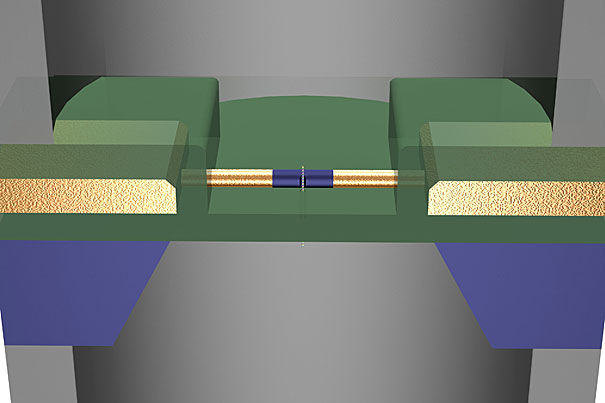
-
Alien worlds, just like home
Harvard astronomers, working as part of NASA’s Kepler mission, have detected the first Earth-sized planets orbiting a distant star, a milestone in the hunt for alien worlds that brings scientists one step closer to their ultimate goal of finding a twin Earth.
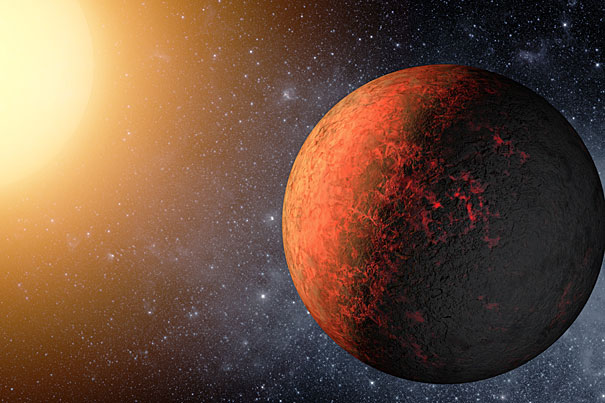
-
A humanitarian comes home
Harvard Medical School Instructor Stephanie Kayden’s educational life came full circle this semester, when she taught a humanitarian studies course in Emerson Hall, where, as an undergraduate philosophy concentrator she honed her own reasoning skills years ago.

-
Dealing with data
A computer program developed by brothers David and Yakir Reshef, together with Professors Michael Mitzenmacher and Pardis Sabeti, enables researchers to scour massive data sets for meaningful relationships that might otherwise have been missed.
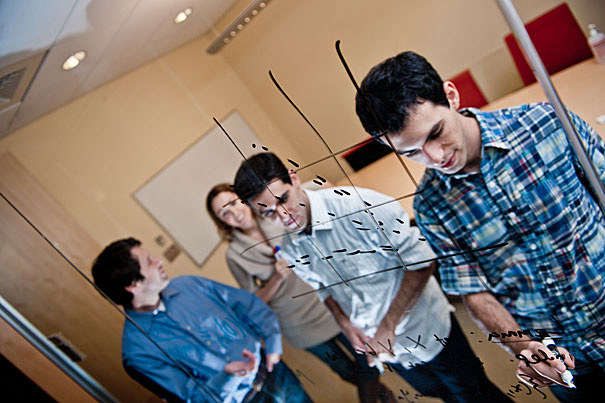
-
Baking in the details
A long-term Semitic Museum project labors to conserve thousands of 3,500-year-old clay tablets that detail everyday life in an ancient city.

-
Of helixes, neurons, and chemicals
Science writer Carl Zimmer talked about the surprising number of science-oriented tattoos gotten by scientists, who wear their love of science proudly, and his related book, “Science Ink: Tattoos of the Science Obsessed,” during a lecture at the Harvard Museum of Natural History.
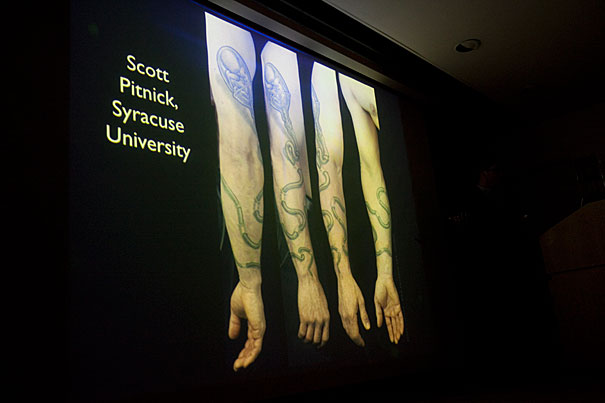
-
Soft-bots
Harvard Professor George Whitesides and his research team have developed an array of “soft” robots based on natural forms, including squids and starfish, that may one day be used to aid disaster recovery efforts by squeezing into the rubble left by an earthquake to locate survivors, or as a way to free up a surgeon’s hands in the operating room.
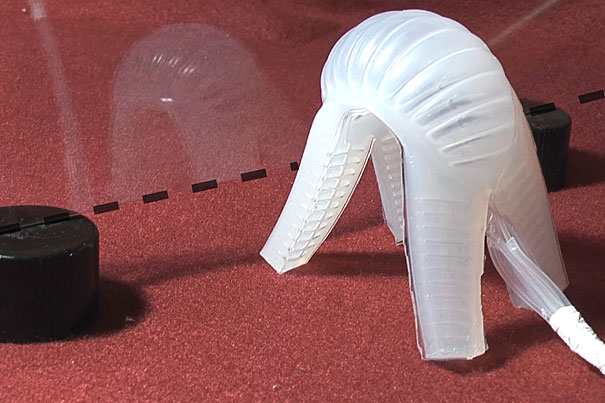
-
Slow road to stability for emulsions
By studying the behavior of tiny particles at an interface between oil and water, researchers at Harvard have discovered that stabilized emulsions may take longer to reach equilibrium than previously thought.
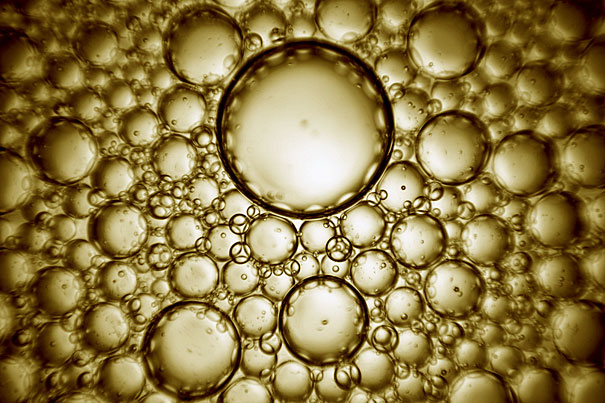
-
Creative pursuits
Projects on display at the CS 50 Fair ranged from a tool that limits procrastination, to a website that displays longitudinal market capitalization data, to an application that helps with music composition.
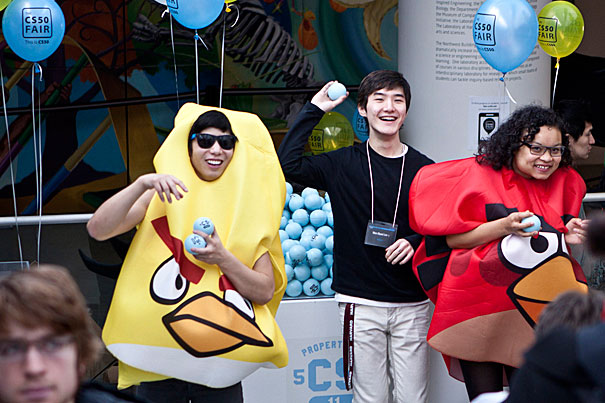
-
When plants may not help
Large-scale increases in forest cover in North America and Eurasia — proposed by some analysts as a way to cut climate change — could hurt the environment by shifting rainfall patterns across the globe, Harvard study says.
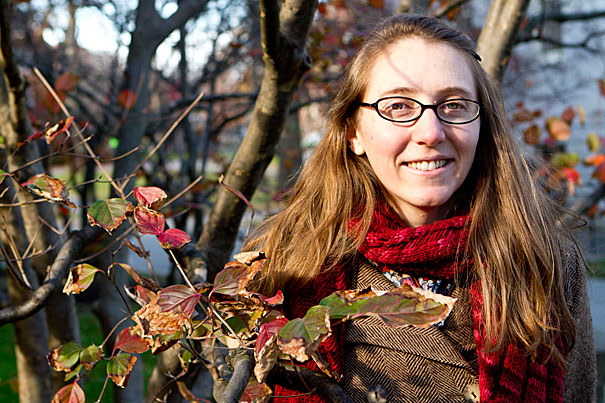
-
Thinking green, and thinking big
At the first Harvard Thinks Green, six Harvard professors gathered at Sanders Theatre to seek big solutions for complex and potentially intractable problems such as climate change.
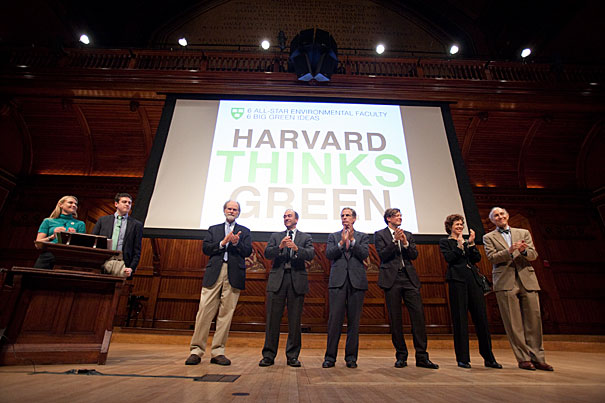
-
Sinking ice and hovering foams
The annual Science & Cooking Fair shows off students’ final projects from the undergraduate General Education course “Science & Cooking: From Haute Cuisine to the Science of Soft Matter.”
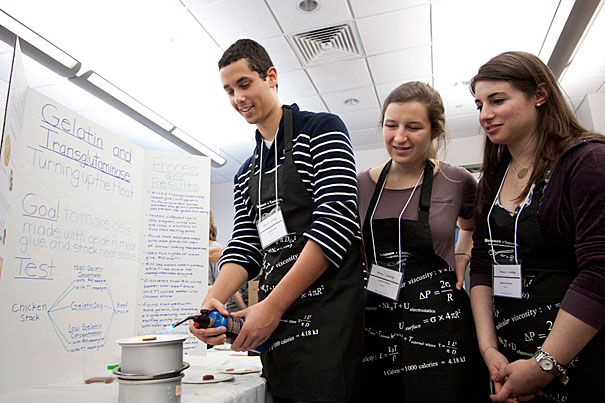
-
Scaling a mountain of trash
With half of U.S. trash still going into landfills, discussions are ongoing about how to handle the nation’s waste, with recycling, composting, incineration, and reuse all part of the mix, says Samantha MacBride, who studies such issues.
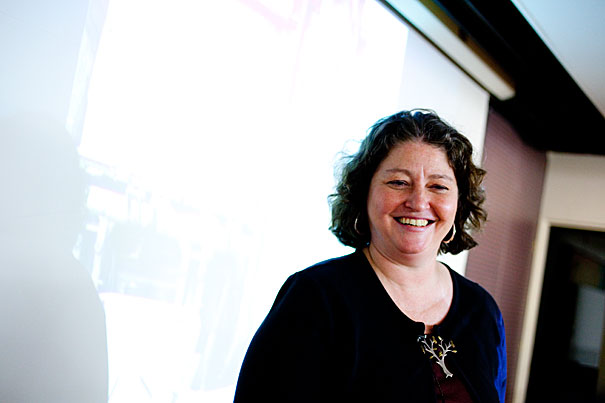
-
Optimism on solar energy
Energy Secretary Steven Chu says China has “Henry Ford-ed” the U.S. solar industry, building a global empire on advances made in the U.S.
